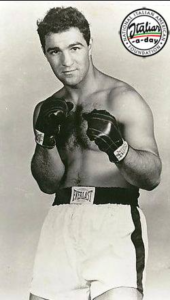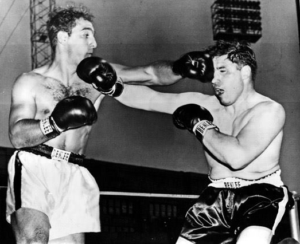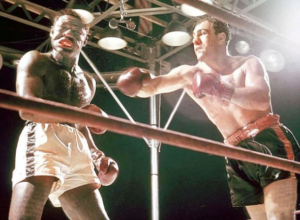Known for his extraordinary skill, tenacity, and sportsmanship, In this article, boxing legend Don Cockell was well-liked in the sport. His perseverance and love for the game are evident in his rise from modest beginnings to become one of boxing’s greatest heroes.
Early life
Donald John Cockell was born in Balham, London, on 22 September 1928, to Battersea domestic worker Mary Cockell. Never knew his father. Blacksmithing gave him a robust build. He started fighting in fairground booths and became a professional in 1946.
Working life
On June 26, 1946, Cockell knocked out Trevor Lowder in the fifth round in his first professional bout. He maintained a strong combat record despite occasional defeats. Freddie Mills retired, leaving him eligible to contend for the British light-heavyweight title in 1950. He knocked out Mark Hart in the fourteenth round at Harringay Arena on October 17 to win the title:
- Cockell won two more fights before challenging Frenchman Albert Yvel for his European light-heavyweight title.
- Cockell defeated his opponent in Earls Court, London, on March 27, 1951, by technical knockout in the sixth round.
- Cockell won two more matches before defending his British and European belts against former British middleweight champion Albert Finch.
- On October 16, 1951, at Harringay Arena, Cockell knocked out his opponent in the seventh round.
- Next, Cockell lost to American heavyweight Jimmy Slade. Cockell was knocked down twice in the first, once in the second, and twice in the fourth at Harringay Arena.
- The referee stopped the fight. Cockell beat Italian light-heavyweight Renato Tontini on points after being knocked down twice in the second round.
- Randolph Turpin, who defeated Sugar Ray Robinson the year before, became the world middleweight champion before losing it in a rematch. Next, Cockell faced him.
- Defending his British title, Cockell contested for the Commonwealth light-heavyweight title. The battle occurred at White City Stadium on June 10, 1952.
- Cockell was technically knocked out in the eleventh round after three knockdowns. Cockell lost because he struggled to meet light-heavyweight standards. Decided to battle heavyweight.
Blacksmith Don Cockell

He had no place fighting Rocky Marciano. That was the widespread consensus when blown-up light heavyweight Donald John Cockell entered the lion’s lair. However, the Battersea striker disagreed:
- Born in Balham on 22 September 1928, his mother Mary, a Battersea domestic servant, raised him. No, he never met his father.
- Cockell started boxing in fairground booths, became an amateur, and went pro on June 26, 1946, at 17.
Tony “The London Tiger” Cockell: Blacksmith to Heavyweight Champ
His daily work as a blacksmith built his muscular physique, and he won the British and European light heavyweight belts just five years after his debut. After losing to ‘The Leamington Licker’ Randolph Turpin on June 10, 1952, the southwest London favorite moved up to heavyweight:
- Cockell seems to have found his niche at 200 or more. He went undefeated for 21 months, winning 10 more fights against quality opponents to win the British and Commonwealth heavyweight titles.
- Harry ‘Kid’ Mathews, Tommy Farr, and Roland La Starza, who came closest to defeating Rocky, were eliminated. Cockell’s convincing win over La Starza may have given him the promotional and media impetus to face Marciano.
Cockell vs. Marciano: Style and Personality Battle
Two weeks before the bout, Cockell left the Queen Mary in New York with his management team, John and Fred Simpson, promoter Jack Solomons, and sparring partner Ron Harman. He led the gang in a fitted single-breasted suit, pressed white shirt, and silk tie, looking like a Hollywood star:
- Marciano was known for battling like a barbarian in the ring despite his soft-spoken, quiet personality.
- His fight with 27-year-old Cockell was no exception. Press had planned headlines of ‘Marciano KOs Cockell in 2,’ but the Londoner had other intentions despite the Rock’s ferocious attack.
The Brutal Exchange and Near-Disqualification of Cockell vs. Marciano
Cockell was hanging over the ropes in the eighth round and had to be brought back to the corner before kneeling in the ninth following a battering. The defenseless Londoner knew the ‘protect oneself at all times’ directive didn’t apply on canvas. Marciano’s powerful right hand nearly smashed him, showing little regard for the Queensberry Rules. A near-certain disqualification in Britain.
Marciano vs. Cockell: Ringside Grit and Guts Discussion

Ringside BBC reporter Eamonn Andrews observed, “Marciano is one of the toughest champions who ever rubbed a foot in resin.” He added, “He never read the rules. He played another sport than Cockell was taught. Unmercifully, he elbowed and hit low.”
- Afterward, the ‘Brockton Blockbuster’ remarked, “I hit him harder than I ever hit anybody!” Perhaps he was frustrated.
- Cockell fought longer than 80% of Rocky’s world heavyweight challengers. His gutsy performance made him and Britain proud.
Tony “The London Tiger” Cockell: Boxer to Tavern Landlord and Skilled Blacksmith

After two more losses, he retired with 66 wins in 81 fights. After retiring, he traveled south and became the landlord of the Jenny Lind tavern in Hastings, where he proudly exhibited his belts behind the bar and told his ring battle stories to interested customers.
- In 1975, Cockell returned to work as a skilled blacksmith at Fulham’s London Underground Bridge depot.
- His cancer-related death on July 18, 1983, prevented him from enjoying his work.
English Heavyweight Boxer Don Cockell
In May 1955, Don Cockell fought Rocky Marciano for the heavyweight title as the 5th-ranked contender in the world. Cockell’s record was patchy. Some wins, but also losses against middleweights and 5 knockouts by middling opponents.
- Cockell’s native British newspapers gave him little chance of fighting or winning. The undefeated Marciano was a formidable opponent since his 1948 debut.
- He defeated most of his opponents. He defended his 5th title against England. My ebook compares the careers of the former London blacksmith with the popular heavyweight champion.
- Few expected their fight to be as tough as it was. The Ring Encyclopedia (1955) was my main source. I added many current news accounts to generate interest for the heavyweight fight.
Boxing Style & Technique of Don Cockell
Don Cockell boxed fascinatingly. His strength, flexibility, and precision were impressive. Additionally, his movement, defense, and punches destroyed opponents. Don Cockell was clever and could adapt to numerous fighting tactics.
Biographical Book of Don Cockell
British boxer Don Cockell competed from 1945 to 1955. He is best known for his 1955 world heavyweight title bout with Rocky Marciano. Don Cockell is listed in many boxing history books, however he may not have a biography. This page covers Don Cockell’s life.
Interested in Learning More About Him?
Read boxing history books, biographies of other boxers from the same era, or general literature on heavyweight boxing. These sources may reveal his career and competition.
Don Cockell’s Legacy Beyond Boxing
His perseverance and refusal to quit have inspired many young fighters. Cockell will forever be remembered for his impact on boxing. He encouraged and mentored young boxers after retiring from boxing. Still interested in boxing, he was a prominent figure until his 1979 death.
Why Was Boxing Famous in the 1950s?
This was taught in schools until the 1960s. A popular boy’s sport. Because of this, we have outstanding boxers until now. After an anti-boxing campaign in Britain, schools stopped teaching it. Learn the skills in the anti-boxing club. Boys used to feel like heroes by demonstrating their manhood via boxing.
Family
He married Patricia Mary Cockell. His son was Patrick. His brother David Hammond worked alongside him.
Retirement of Don Cockell
He was hardworking and completed several jobs. He farmed and then became a publican. He owned an East Sussex haulage company. He was a London Underground Lillie Bridge Depot blacksmith. Emergency working was his last job. He died on July 18, 1983, at a Tooting, London hospital.
Conclusion
Don Cockell’s boxing legacy lives on. His rise to boxing’s top ranks shows the force of tenacity, determination, and excellence. Cockell’s legacy as a boxing hero will last for years.

